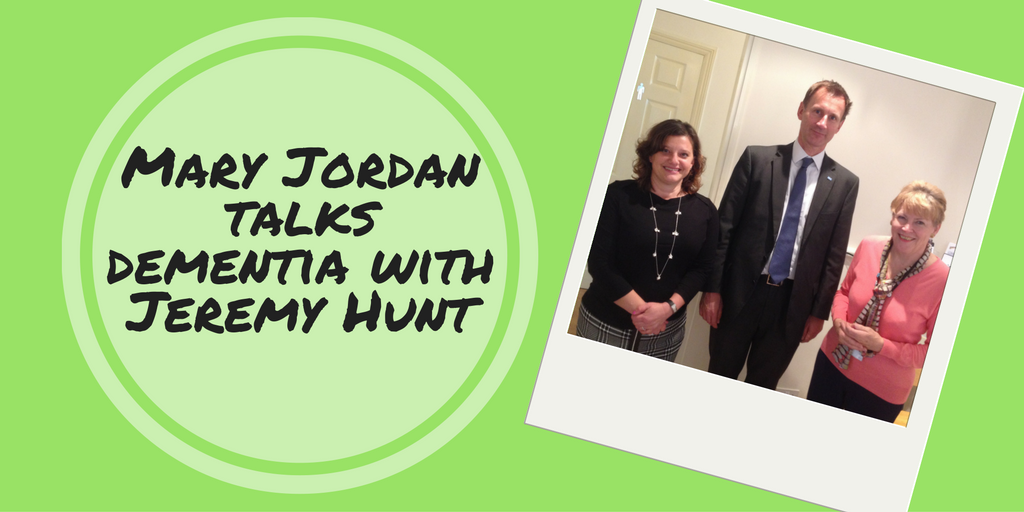
Since I began working with a national dementia charity nine years ago there have been many improvements to the level of support that people living with dementia (by which I mean both those with a diagnosis and their families and carers) receive. It is now rare for me to meet someone who has struggled for months to get a diagnosis. More GPs are aware of the signs and symptoms and people are more likely to be referred for memory assessment. When I met Jeremy Hunt he explained that he had been campaigning for earlier diagnosis knowing that this can make it easier for people to get the help and support they need. We discussed what still needed to be done for those affected by dementia.
It seems to me that the most important thing now is to get society in general to accept those with dementia and to keep them integrated in the company they know and enjoy. Day centres, Dementia cafés and other specialist services like musical memory groups all serve a useful function and are popular -until recently I ran a very well attended and popular dementia café myself – but our real aim should be to make it possible for people with dementia to continue to go to the social groups, clubs and events which were part of their life before diagnosis.
Some things are already being done. In many places, in Britain there is a huge campaign to make businesses, shops, and public areas ‘dementia friendly’. The ‘Dementia friends’ campaign by Alzheimer’s Society has also had a big impact in terms of making people generally aware of the difficulties experienced by those with dementia trying to function in everyday life. These are all good initiatives. But acceptance is the key. The above initiatives make people aware of dementia and they may make people more willing to help when they see someone having difficulties but do they make people with dementia more accepted?
Dementia is a problem for all of society but this is still little recognised. Most public places are now ‘accessible’ in terms of physical disability with level paths, ramps for wheeled access, better signage, bigger parking spaces and so on. We should now consider making changes to improve accessibility for those with the cognitive disability. Such changes might include material factors such as better street signs, clear demarcation of different areas and well defined entrances and exits but they should also include the vital human factor. People with dementia need support from other humans. Assistive technology can be helpful in a limited way but social interaction is what slows the slide into helplessness. Just as the public have been educated to recognise the rights and needs of those with a physical disability, so the rights and needs of those with a cognitive disability need now to be addressed in our neighbourhoods and our public places and by all of us in our local communities.
Mary Jordan is an expert in dementia care and works for a national dementia charity. Her books The Essential Carer’s Guide to Dementia and The Essential Guide to Avoiding Dementia offer invaluable insights into the condition and how to care for those with the condition.
